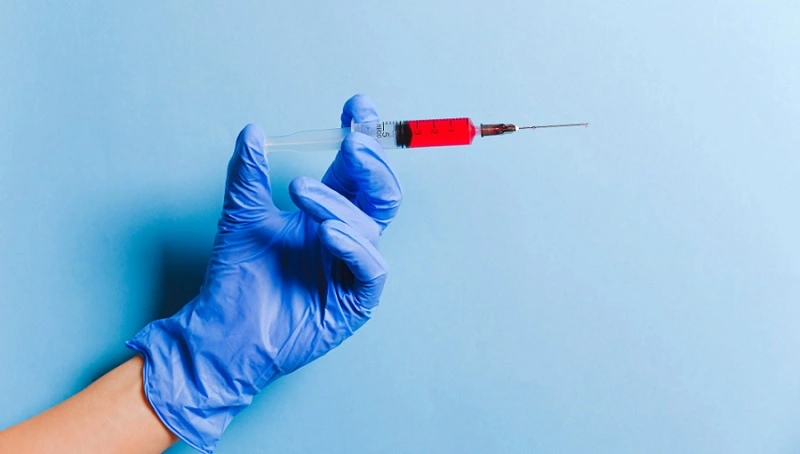The AMH blood test is a simple, quick, and painless test that measures the levels of anti-Müllerian hormone (AMH) in your blood. AMH is produced by small follicles in the ovaries, and its levels can give your healthcare provider important information about your reproductive health—particularly your ovarian reserve.
Keep reading to learn more about the AMH blood test, what it can tell you, and why you might need to have one.The AMH blood test, or anti-müllerian hormone test, is a measure of ovarian reserve. It’s a screening test used to estimate the number of eggs a woman has left and predict fertility.
The results of this test, along with other factors such as age, can be used toigmxn diagnose fertility problems and recommend the best treatment options. The AMH blood test, also known as the anti-Müllerian hormone test, is a way to measure ovarian reserve.
This test is important for women who are of childbearing age because it can give insight into the health of her eggs and fertility potential. Did you know that a woman is born with all the eggs she’ll ever have? That’s right, we don’t make any new eggs throughout our lives. This is why it’s important to take care of the eggs we have. The AMH blood test can give women valuable information about their egg health.
Generally, the higher the level of AMH in a woman’s blood, the better her chances are of getting pregnant. A woman with a low AMH level may have difficulty conceiving or may be at risk for premature menopause. Keep reading to learn more about this important blood test and what your results may mean for you.
What Is the AMH Blood Test?
The AMH blood test is a screening test used to measure the levels of anti-Müllerian hormone (AMH) in your blood. AMH is produced by small follicles in the ovaries, and its levels can give your healthcare provider important information about your reproductive health—particularly your ovarian reserve. For more information about the AMH blood test you can visit the welzo.
How Is the Test Done?
The AMH blood test is a simple, quick, and painless test that can be done in your healthcare provider’s office. A small sample of blood will be taken from a vein in your arm, and the results will be available within a few days.
Why Might I Need an AMH Blood Test?
Your healthcare provider may recommend an AMH blood test if you’re experiencing irregular periods, changes in menstrual flow, or difficulty getting pregnant. The test may also be ordered if you have a family history of early menopause or POI/POF.
What Are the risks?
There are no risks associated with the AMH blood test.
What is ovarian reserve?
Ovarian reserve is the number of eggs a woman has left in her ovaries. This number decreases as a woman ages and is one of the main determinants of fertility. A woman is born with all the eggs she will ever have, and this number gradually declines throughout her life. By the time she reaches menopause, she will have only a small fraction of her original egg supply remaining.
Why is the AMH blood test done?
The AMH blood test is done to help estimate how many eggs a woman has left and to predict fertility. It can also be used to diagnose certain fertility problems, such as premature ovarian failure. The results of this test, along with other factors such as age, can help determine whether a woman is at risk for infertility and recommend the best treatment options.
How is the AMH blood test done?
The AMH blood test is a simple blood test that can be done at your doctor’s office or a local lab. A small sample of blood will be taken from a vein in your arm and sent to a laboratory for analysis. The results of the test are usually available within a few days.
What Is an AMH Blood Test?
The anti-Müllerian hormone (AMH) is produced by small follicles in the ovaries. The follicles each contain an immature egg. Every month during ovulation, one of these follicles will mature and release an egg that can be fertilized.
Why Is the AMH Blood Test Important?
As women age, they lose eggs and their ovarian reserve decreases. A woman is born with all the eggs she will ever have and there is no way to make new ones. It’s estimated that women lose around 1,000 eggs per year starting in their early 30s. This loss accelerated as women approach menopause.
Because we lose Eggs as we age, fertility naturally declines with age as well. In fact, fertility starts to decline around age 32 and drops off rapidly after age 37.. By age 40, a woman’s chance of getting pregnant naturally (without fertility treatments) is just 5 percent. The chance of miscarrying also goes up with age.. All this to say – age really is just a number when it comes to having kids!
Conclusion:
The AMH blood test is a simple, quick, and painless way to measure the levels of anti-Müllerian hormone (AMH) in your blood. This hormone is produced by small follicles in the ovaries and its levels can give information about your reproductive health—particularly your ovarian reserve. The results of this tests can help to diagnose conditions such as polycystic ovary syndrome (PCOS), primary ovarian insufficiency (POI), or premature menopause.
If you are experiencing irregular periods, changes in menstrual flow, or difficulty getting pregnant—or if you have a family history of early menopause or POI/POF—talk to your healthcare provider about whether or not the AMH blood test is right for you.
The AMH blood test is a valuable tool for predicting fertility and diagnosing certain fertility problems. If you’re considering conception in the near future,talk to your doctor about whether this test is right for you.The bottom line?
An AMH blood test is quick, easy and painless way to get valuable information about your egg health and fertility potential. If you are trying to conceive or are concerned about your fertility potential, talk to your doctor about whether this test might be right for you.








